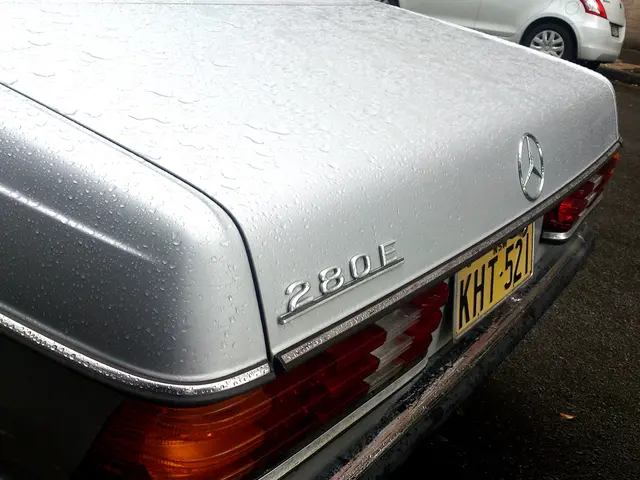Investment strategies through Stocks and ISAs: A comprehensive guide
Ready to dive into the world of stocks and shares ISAs? Here's the lowdown on these tax-efficient investment bombers!
Stocks and shares ISAs are a way to grow your wealth over time while avoiding the sting of tax, making them attractive for long-term savers. But what are they, exactly, and is it the right move for you? Let's explore!
Stocks and shares ISAs Demystified
A stocks and shares ISA is simply a tax-efficient investment account. In the UK, each tax year (April 6th to the following April 5th), you can stash up to £20,000 into ISAs. While cash ISAs function similarly to traditional savings accounts, stocks and shares ISAs come with a dash of risk because the value of investments can skyrocket or nosedive. It's essential to understand that investing in the stock market through this account means your hard-earned cash gets a ride in the market's ups and downs—but the potential higher returns are enticing!
Stocks and shares ISAs are open to those aged 18 and above who are UK residents. Tax residents who don't reside in the UK might also qualify, such as crown employees or their spouses.
The Inner Workings of Stocks and Shares ISAs
Stocks and shares ISAs empower savers to pick industries and markets they fancy, enjoying the thrill of market fluctuations while aiming for higher yields compared to cash saving accounts.
These accounts can be established through banks or investment platforms, chosen based on your preference, and many providers provide online applications to streamline the process. You can set up your account in various ways, depending on your comfort level and investment goals:
- Self-Select ISA: If you're feeling adventurous, this option lets you handpick your own shares, giving you more control over your portfolio. However, managing your investments can be time-consuming.
- Managed ISA: Find peace of mind by letting investment managers or robo-investing services take the reins. Simply share your risk tolerance and investment strategy with your provider, and let them make you rich!
A stocks and shares ISA can be invested in companies, funds, or bonds. Make informed decisions based on market research and investment trends.
Opening a Stocks and Shares ISA
To get started, you'll need to pick your provider and apply online or through other channels. They'll ask for details like your name, date of birth, and address. Once your account is set up, deposit a lump sum or opt for regular installments, and watch your wealth grow!
The Tax-Free Promise of Stocks and Shares ISAs
Stocks and shares ISAs are tax-free, protecting your money from the clutches of income tax, capital gains tax, and the like. This tax shield can help your investments thrive without worrying about the erosive effects of taxation.
Inheritance Tax Concerns
While stocks and shares ISAs save you from income tax and capital gains tax, they are not shielded from inheritance tax. The total value of this ISA must be considered when calculating the value of an estate upon death, which may impact your assets' inheritance tax liability.
Multiple ISAs: Balancing the Risk
Individuals can hold multiple ISAs, but strive for a balanced, diversified portfolio to avoid overexposure to a single sector or region. Be mindful of the time and effort needed to manage multiple ISAs efficiently.
Transferring Stocks and Shares ISAs
Yes, you can transfer your ISAs from one provider to another, which typically requires reaching out to both your existing and new providers. Be aware of any transfer fees associated with this move.
The Cash vs Stocks and Shares ISA Debate
Considering a cash ISA instead? You can transfer investments between the two types, or even keep cash within your stocks and shares ISA for flexibility. Check out our "cash ISA vs stocks and shares ISA" guide for more insights on which one will work best for your needs.
Now that you've got the lowdown on stocks and shares ISAs, take the first step towards tax-free investing and growing your wealth. Happy investing! 💸📈
- In addition to the tax-efficiency of ISAs, investing in stocks and shares ISAs can offer higher returns compared to traditional savings accounts, but carry a higher risk due to market fluctuations.
- For those who prefer hands-off management, managed ISAs allow investment managers or robo-investing services to make decisions based on individual risk tolerance and investment strategy.
- Stocks and shares ISAs can be invested in various assets such as companies, funds, or bonds, giving investors the opportunity to diversify their portfolios.
- While stocks and shares ISAs are not exempt from inheritance tax, careful management of a balanced, diversified portfolio can help reduce its impact on your assets' tax liability.




